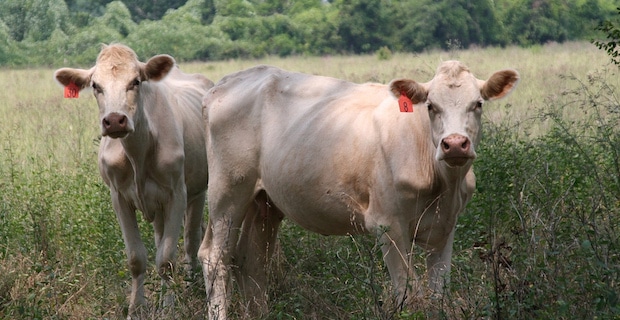
FDA has told livestock producers that they can no longer use antibiotics as growth promoters in an effort to curb drug resistant bacteria. Antibiotics used for livestock will no longer be sold over the counter. The new policy to phase out overuse use of antibiotics in cows, pigs and chickens raised for meat is the agency’s first attempt in nearly a decade to slow the use of antibiotics in livestock.
“This is the first significant step in dealing with this important public health concern in 20 years,” David Kessler, a former FDA commissioner who has been critical of the agency’s track record on antibiotics, told The New York Times. “No one should underestimate how big a lift this has been in changing widespread and long entrenched industry practices.”
Read more about antibiotic overuse
The FDA’s new guidance (Guidance #213) will take effect over the next three years. Now, food producers will have to get prescriptions from veterinarians to use the drugs to prevent disease.
“It’s a big shift from the current situation, in which animal producers can go to a local feed store and buy these medicines over the counter and there is no oversight at all,” said Michael Taylor, the FDA's deputy commissioner for foods and veterinary medicine in The New York Times.
These new rules provide guidance to drug companies to voluntarily revise labeling to stave off the use of antimicrobial drugs for production purposes. The changes are voluntary among drug companies. The effort will hopefully reduce mortality from drug resistant infections, a health catastrophe which results in 23,000 deaths annually. Currently, the drugs are administered through feed and water.
FDA is specifically concerned with medically important drugs, which are crucial for human health and they believe a collaborative approach is the fastest and most effective means of implementing the necessary changes.
Read more about antibiotics and meat
Drug resistant bacteria make their way into humans when we consume undercooked contaminated meat. Additionally, farmers are routinely exposed to antibiotics and antibiotic resistant infections, which is a breeding ground for resistance. And finally, exposure to antibiotics and antibiotic resistant bacteria can occur when the nearly two trillion pounds of animal waste produced annually makes its way into rivers, lakes, and streams as run-off, which contaminates soil and ground water.
Image: Emmet Tullos




